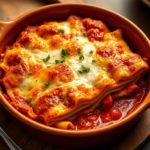Moroccan Jewish Couscous: A Culinary Tale of Tradition and Heritage

Couscous, often dubbed the “king of Moroccan cuisine,” holds a revered place in the hearts and kitchens of Morocco. Among its many variations, the Jewish version stands out as a symbol of cultural identity and tradition. This dish, infused with both religious and cultural significance, is a testament to the culinary ingenuity of the Moroccan Jewish community. From Shabbat tables to festive celebrations, it tells a story of heritage, adaptation, and unity.
The Origins of Moroccan Jewish Couscous
Couscous traces its origins to the Berber communities of North Africa, but its journey into Moroccan Jewish households brought new layers of meaning and flavor. As Jewish communities settled in Morocco over millennia, they adopted and adapted local culinary practices. Couscous became more than just a staple; it evolved into a dish steeped in spiritual and cultural symbolism.
A Dish for Every Occasion
- Shabbat and Religious Significance:
On Friday nights, Moroccan Jewish families prepare a special couscous dish for Shabbat. Often served with a chicken or vegetable broth, the meal embodies the values of rest, gratitude, and community. The inclusion of sweet elements like raisins and cinnamon reflects the hope for a sweet and peaceful week ahead. - The Mimouna Celebration:
Couscous takes center stage during Mimouna, the joyous festival marking the end of Passover. Traditionally, it is served sweet, with honey, dried fruits, and nuts, symbolizing abundance and blessings for the coming year. - Life Cycle Events:
From weddings to Bar Mitzvahs, couscous is a cornerstone of celebration. Its versatility allows it to adapt to various occasions, whether as a savory main course or a sweet dessert.
The Unique Preparation of Moroccan Jewish Couscous
While the preparation of couscous follows similar techniques across Morocco, the Jewish variation introduces unique twists:
- Ingredients: Couscous grains are steamed multiple times for a light, fluffy texture. The dish often features a medley of vegetables, chickpeas, and a delicately spiced broth.
- Sweet and Savory Fusion: A hallmark of Jewish Moroccan couscous is its harmonious balance of sweet and savory, achieved with ingredients like caramelized onions, raisins, and cinnamon.
- Attention to Kosher Guidelines: The use of kosher ingredients and separate preparation methods ensure the dish adheres to dietary laws, adding a layer of spiritual care to the culinary process.
Global Influence and Legacy
As Moroccan Jewish communities migrated to different parts of the world, they carried their culinary traditions with them. Today, Moroccan Jewish couscous is celebrated in countries like Israel, France, and Canada. It serves as a culinary bridge, connecting generations and preserving a rich heritage through the universal language of food.
Why Moroccan Jewish Couscous Matters?
Beyond its exquisite taste, Moroccan Jewish couscous represents a unique blend of cultural exchange and preservation. It embodies the resilience of a community that has navigated history’s challenges while honoring its roots. This dish is not merely food—it’s a celebration of identity, history, and the enduring power of tradition.
Moroccan Jewish couscous is more than a meal; it’s a story told through grains, spices, and shared moments. Its rich heritage and cultural significance make it a timeless treasure of Moroccan Jewish cuisine, a dish that continues to unite people across generations and borders.




